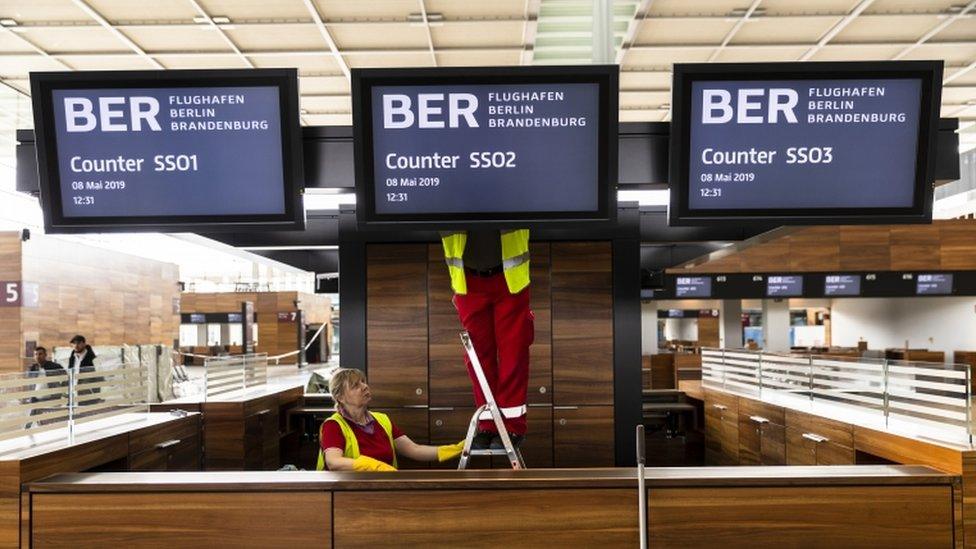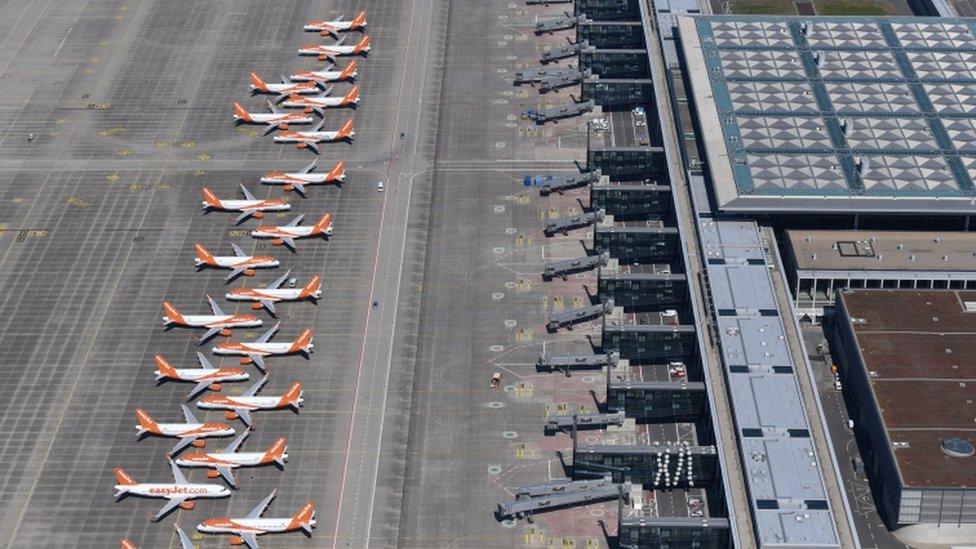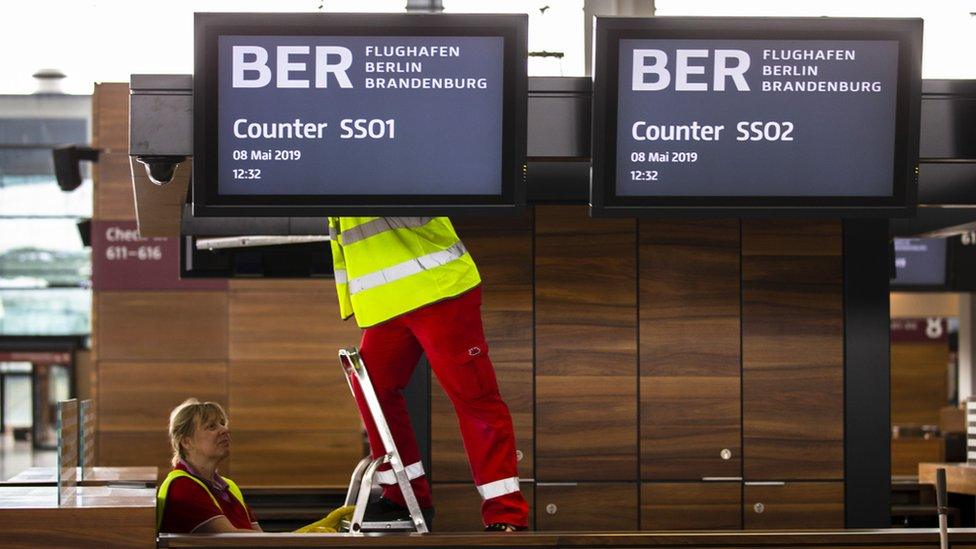Germany's new Berlin airport set for take off, nine years late
- Published

The new airport has already missed six opening dates
There may be no passengers on the horizon because of the coronavirus pandemic, but Berlin's long-awaited new airport has finally been given clearance for take off on 31 October.
Berlin-Brandenburg was due to open in March 2011 but delays and scandals put it on hold for almost a decade.
Building authorities have now given it the green light, 14 years after construction began.
It will replace the capital's old Tegel and Schönefeld airports.
Berlin-Brandenburg, also known as Willy Brandt airport after the former West German chancellor, was never going to be ready in time for the summer.
Holidays on hold
That tourist season is already under threat, with the government aiming to extend a worldwide travel ban for tourists up to 14 June and leaving a decision on the rest of the summer until later.
German states operate a staggered summer holiday with the northern state of Mecklenburg-Western Pomerania starting on 22 June.
"A normal holiday that we've grown used to with full beaches won't happen this year anywhere, whether in Europe or anywhere else in the world," Foreign Minister Heiko Maas has said.

These planes have been left idle on the tarmac in Berlin because of the travel lockdown
The travel sector has been hit especially hard by lockdown restrictions. Germany is predicting a 6.3% fall in economic output in 2020, bigger than the slump that followed the 2008 financial crisis, reports say.
What took the airport so long?
Construction at the airport, south of Schönefeld, began in 2006. But a mixture of design fiascos and other issues turned Berlin-Brandenburg into a national embarrassment as it missed six opening dates in succession. The main problems were:
Meinhard von Gerkan's original terminal design had to be redrawn with twice the capacity in a row over the airport company adding airport shopping
The construction planning company went bankrupt
Then there were problems with sprinklers, fire doors and cabling and the public cost mushroomed
A corruption scandal prompted accusations that a whistleblower had become ill after his coffee was poisoned
It soon emerged that the increase in flights to Berlin meant it would already not be big enough even by the time it opened.
Now safety company TÜV has given the airport a clean bill of health and airport boss Engelbert Lütke Daldrup sees the opening as a sign that "things are back on the rise in the capital region and that the economy is getting back on its feet".
Operational tests still need to be carried out and aviation permits granted but officials say nothing stands in the way of an autumn opening.

You might also be interested in:
Despite their reliance on tourism, the community on the Isle of Mull say lockdown is bringing them together

A SIMPLE GUIDE: How do I protect myself?
AVOIDING CONTACT: The rules on self-isolation and exercise
HOPE AND LOSS: Your coronavirus stories
VACCINE: How close are we to finding one?
TESTING: Can I get tested for coronavirus?

- Published29 June 2019
